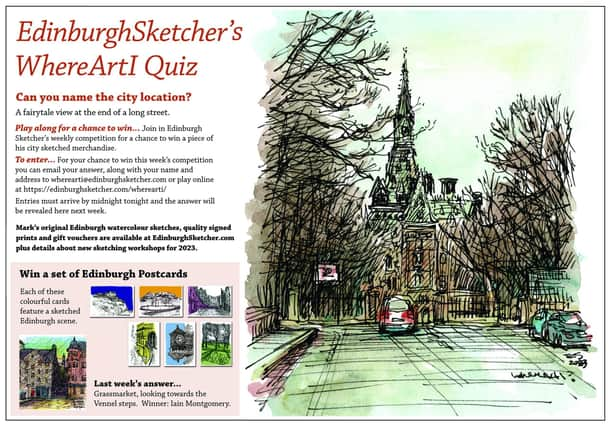Readers' letters: Health issue are beyond our control, Ian


Welsh opposition parties lambasted Labour’s record on health. Just 62 per cent of NHS buildings in north Wales were ‘operationally safe’ and Welsh ambulance workers and nurses, but not Scottish, are on strike.
In his defence, Welsh First Minister Mark Drakeford said health funding had been squeezed by Westminster with borrowing frozen at 2016 levels, so where was he to find the extra money?
Advertisement
Hide AdAdvertisement
Hide AdThat’s the problem with devolved government. Real power – to borrow and create money, set interest rates and invest where needed – is retained by Westminster, hamstringing Cardiff and Edinburgh.
As for GP shortages, English universities have been ordered to limit the number of medical school places to 7500 or face fines of £100k per student.
That’s extraordinary when the NHS is facing historic staff shortages. Brexit, opposed by most Scots but now supinely supported by Starmer’s Labour, has compounded the problem.
Westminster claims it’s too expensive to train more doctors but the reality is we can’t afford not to. Every pound spent on health generates £4 in economic activity, for the obvious reason that unhealthy people cannot work, earn and spend or pay taxes.
Advertisement
Hide AdAdvertisement
Hide AdOver the last decade, the UK spent a fifth less than its European neighbours on health care, which helps explain its pathetic economic performance.
If Ian Murray really cared about his constituents’ health, he’d break with his English puppet masters and support the restoration of Scotland’s statehood.
Leah Gunn Barrett, Edinburgh
Energy budgeting
I have to confess myself slightly puzzled by the news that energy arrears have hit a 10-year high.
Our household has found that with a relatively mild winter to-date the Government subsidy of £400 paid directly to the supplier, turning down the thermostat, putting on an extra sweater and shutting doors our bills have been slightly lower this winter.
Advertisement
Hide AdAdvertisement
Hide AdAn added bonus has been that the reduction in the thermostat has resulted in a less ‘stuffy’ atmosphere.
Of course, we have also ‘cut our cloth’ in terms of shopping to match our budget and not ‘spent’ the fuel savings.
I realise there are many households who always struggle, particularly where there is a long-term illness or medical equipment gobbling up electricity; but most of our friends are in a similar position to us.
Even my grandchildren have twigged that they don’t need the house so warm because they have stopped running around in T shirts and shorts and are dressed more ‘appropriately’.
Advertisement
Hide AdAdvertisement
Hide AdEnergy supplies are a challenge, as our First Lady would say, but one that has to be tackled with all-round budgeting solutions.
James Watson, Dunbar
Sound of silence
When I returned to Scotland one of the joys of Edinburgh were the twice weekly lunchtime concerts by Edinburgh University Music School.
Free and open to the public they were of a high quality given by visiting musicians and also it was a pleasure to see the students making music, some of whom like Louise Aldred have gone on to be international stars.
It is therefore very sad to see that the University has failed to restore these concerts after the pandemic. The University has a commitment to the community. Can I make a plea to the University to restore them?
Hugh Kerr, Edinburgh
Write to the Edinburgh Evening News
Advertisement
Hide AdAdvertisement
Hide AdWe welcome your thoughts. Write to [email protected] including name, address and phone number – we won’t print full details. Keep letters under 300 words, with no attachments. If referring to an article, include date, page number and heading.
Subscribe
Subscribe at www.edinburghnews.scotsman.com/subscriptions
Comment Guidelines
National World encourages reader discussion on our stories. User feedback, insights and back-and-forth exchanges add a rich layer of context to reporting. Please review our Community Guidelines before commenting.